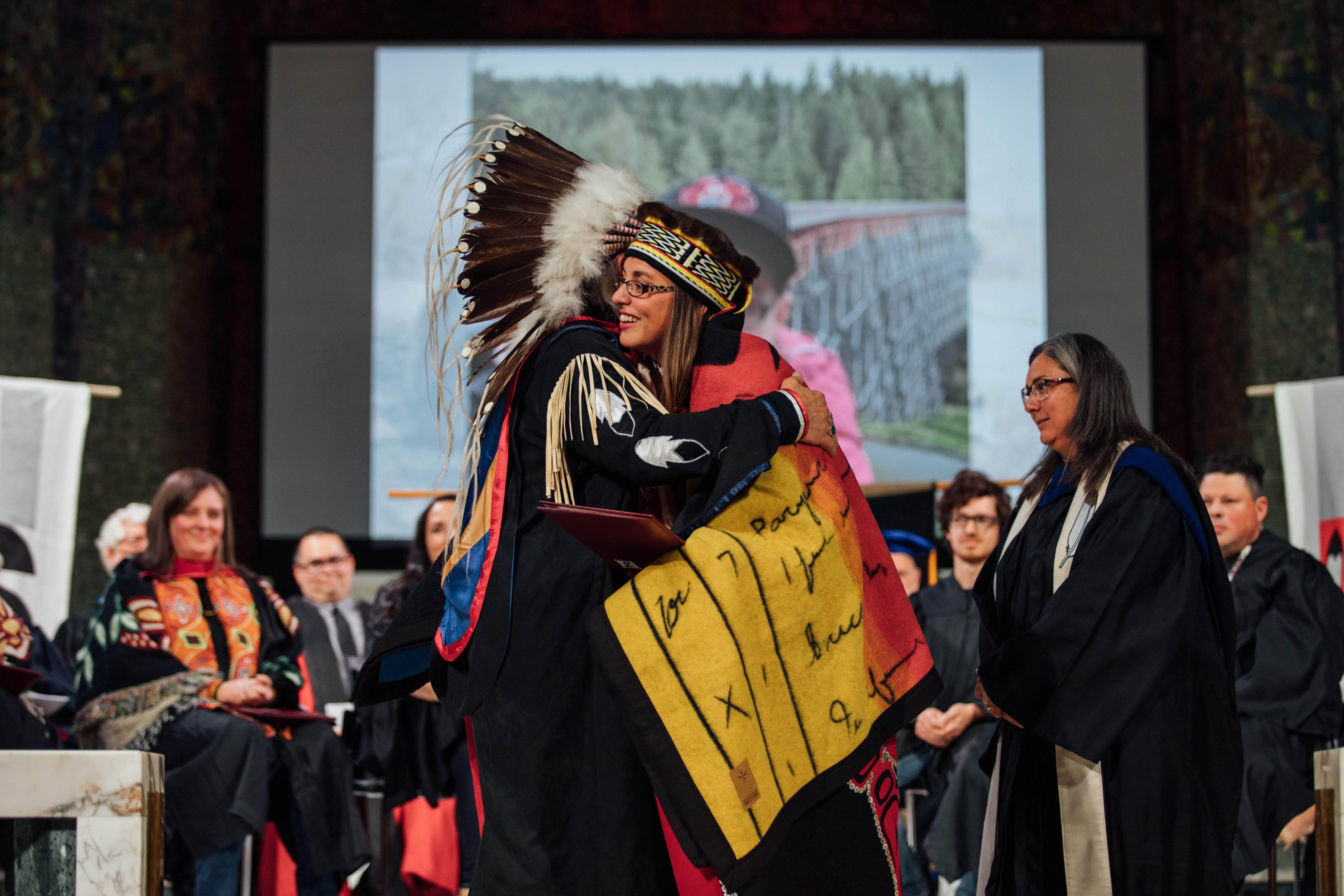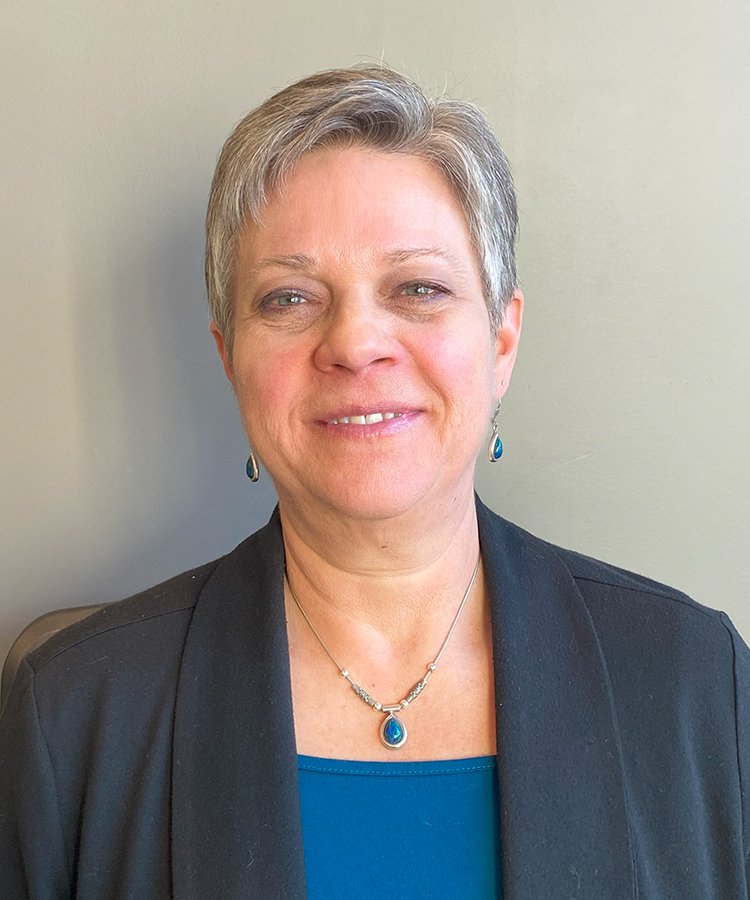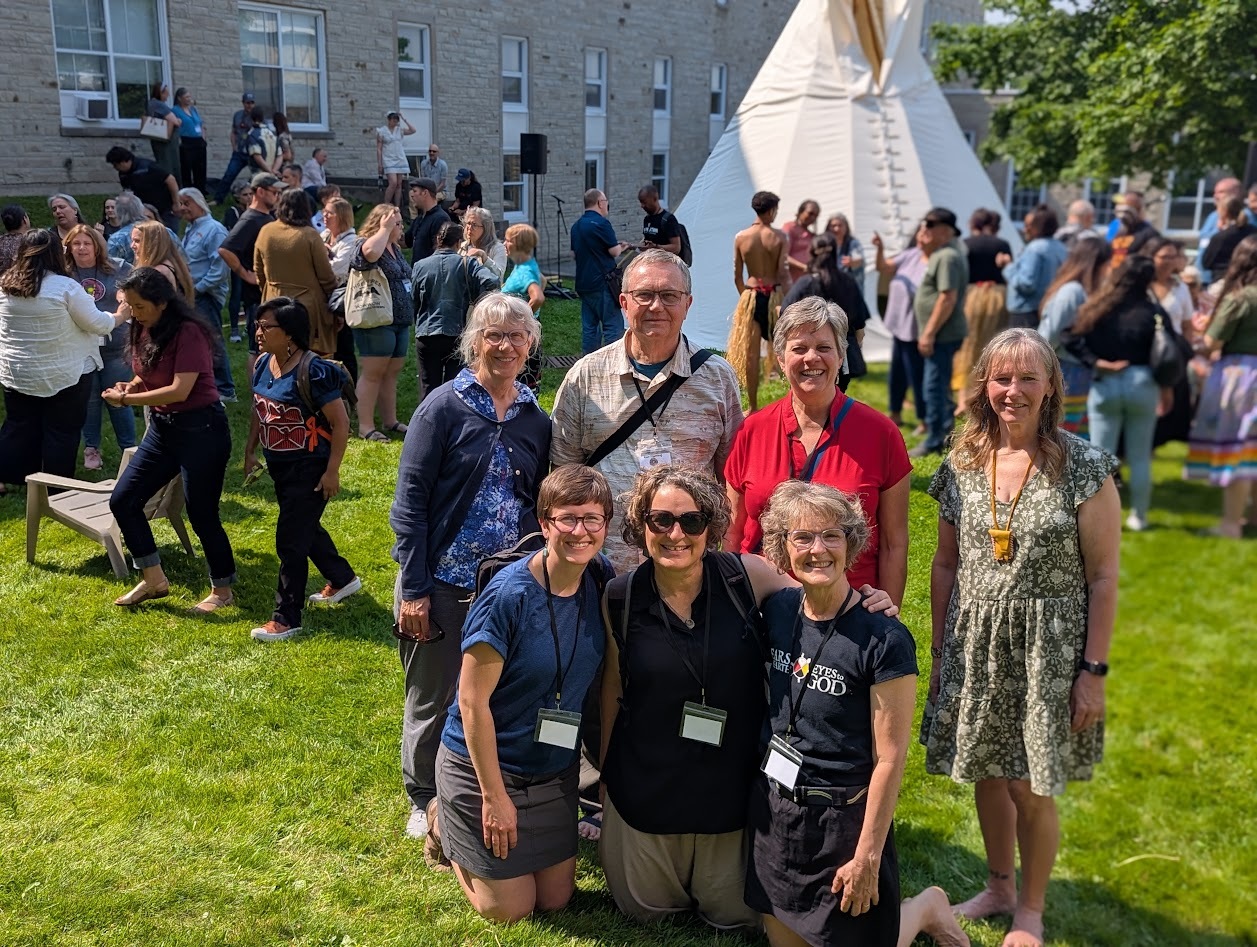Belonging in Unexpected Places: Reflections from NAIITS
July 22nd


NAIITS Symposium 2025 - “Voices of the Matriarchs and Women in Community” (Image:NAIITS)
- Marilyn Rudy-Froese, Leadership Minister
 Over the last few months I've been thinking about belonging. What does it mean for a congregation or for a leader to belong in MCEC? I carried these questions with me into a recent NAIITS gathering.
Over the last few months I've been thinking about belonging. What does it mean for a congregation or for a leader to belong in MCEC? I carried these questions with me into a recent NAIITS gathering.
I was prepared to feel like I was an outsider...
NAIITS is an Indigenous Learning Community dedicated to biblical and theological study, incorporating Indigenous perspectives in theology and practice.
I was prepared to feel like I was an outsider, and surprised by more experiences of welcome and hospitality than of being on the outside. People freely joined others at lunch tables; riding the elevator with someone provided a great opportunity to strike up conversations. I experienced belonging in a way I do not always, even in settings where I know many people. I did not have to apologize for not being further on the journey or justify my presence there. People were excited to welcome me. A regular theme was that we are all on this journey of decolonization. We have all been colonized, Indigenous and Settler alike, and we are all unlearning colonialism.
I recognize the gift of knowing my heritage and being able to freely live out who I am and where I come from. It was hard to hear the oft-repeated stories of people growing up, not knowing they were Indigenous. It was only as adults that they found out they are Indigenous, their Indigenous heritage having been kept a secret in their family. Many of the presenters are reclaiming their culture, learning their language, and embracing who they are. This theological program is designed to recover, reclaim, and honour Indigenous ways of knowing.
In the white Mennonite church, we have much to consider around who is valued in our community, who is invited to speak, and how to honour the wisdom of the elders...
One unique feature of this Symposium came during the responses to the presenters. There was space for people to reflect on what they heard and offer a response. The responses included the usual questions for the presenter or comments about what resonated. The responses also included songs people offered. These songs were powerful and moving responses to the often difficult stories that were shared in the presentations.
The theme of the Symposium, Voices of the Matriarchs, meant that the presenters were predominantly women. Hearing women’s voices and stories and learning about the matriarchal nature of most Indigenous communities was powerful. I cannot remember when I have been in a setting where the voices and leadership from the front were all women! I was struck by how this Symposium honoured the matriarchs who were present, who humbly received that title. It is a title given by the community, not one any of these women sought or claimed for themselves.
I am still thinking about how Indigenous communities denote roles, which are often based on gender, but do not represent hierarchy or value. Women’s roles are at the centre of the community—she is not confined to a particular place in the community, but the whole community is her place. The Women’s Lodge (the Tipi) is a place of empowerment, for women are responsible for the work that happens in and around the tipi, which is the realm of the whole community.[1] Colonialism turned labour into a hierarchical system, in which women’s work and place were seen as inferior to men’s work and place within the family and community.
In addition to gender roles, there is a long history of honouring the elders in Indigenous communities. In the white Mennonite church, we have much to consider around who is valued in our community, who is invited to speak, and how to honour the wisdom of the elders.
I will continue to unpack this experience, particularly about how this connects to our work in MCEC...
What did I learn about belonging? The conversations I had with NAIITS attenders about belonging and my observations while there point to the importance of being non-judgmental. The focus of NAIITS is on education; they are not making theological statements or trying to be a denomination. The people who come are comfortable with a broad range of theology. They are Christians who are integrating their Christian faith with their Indigenous traditions and heritage.
I also noted the gracious invitation to participate in rituals and ceremonies that were new. Explanations were given about what would happen; descriptions of the “right” way to participate were shared—the “right” way is the way you do it. There were no assumptions that everyone knew how to participate. This created a space of grace and welcome.
I will continue to unpack this experience, particularly about how this connects to our work in MCEC. We do not have Indigenous pastors or congregations in MCEC. Local congregations are doing work to build relationships with First Nations communities in their regions. In MCEC, one of our priorities is embracing diversity. As we live into this priority, I expect this path will lead us to name our colonial history and its impact on all of us, and especially on our Indigenous neighbours. Regardless of when we settled here, whether 200 years ago or two years ago, we are all benefiting from a system and structures built on the injustice and harm of First Nations Peoples. As a community of congregations who are transformed by the love of God, inspired by the hope we find in Jesus, and called to action by the power of the Holy Spirit, we are called to be a community of Shalom where each person is seen as beloved of God and all are welcomed and belong.
[1] Anna Robbins and Shari Russell. “The Women’s Lodge and Theological Education: Leadership Insights from the Bajiishka’ogaon”, Saturday, June 7, 2025 lecture.

MCEC learning and growing at NAIITS
While I registered expecting to go on my own, I soon discovered that MCEC people from Kitchener-Waterloo were also going.
I learned much from these individuals who have dedicated time and work to learning about Settler history in our community and building relationships with Indigenous people.
Back Row: Melissa Miller, Ron Fleming, Marilyn Rudy-Froese, Dianne Climenhage; Front Row: Laura Enns, Wendy Janzen, Josie Winterfeld